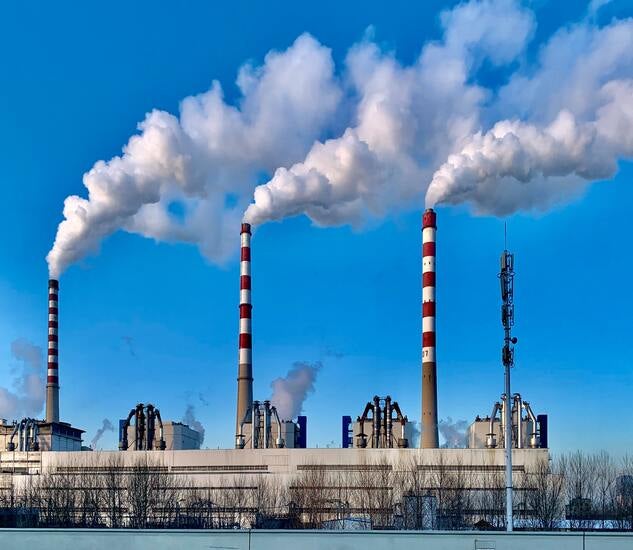
Independent exploration and production company Lundin Energy claims to have sold the ‘world’s first certified carbon neutrally produced oil’ product.
The Sweden-based company sold 600,000 barrels of oil equivalent (boe) to Italian downstream company Saras. These came from Lundin’s Edvard Grieg field, which had its carbon intensity certified by product testing company Intertek.
How well do you really know your competitors?
Access the most comprehensive Company Profiles on the market, powered by GlobalData. Save hours of research. Gain competitive edge.

Thank you!
Your download email will arrive shortly
Not ready to buy yet? Download a free sample
We are confident about the unique quality of our Company Profiles. However, we want you to make the most beneficial decision for your business, so we offer a free sample that you can download by submitting the below form
By GlobalDataIntertek measured the CO₂ emissions of oil production at the field as 3.8kg/boe, including all parts of the field lifespan. Lundin says this makes the field five times less carbon intensive than the industry average.
As part of a new certification, Intertek compared these measurements with traceable carbon offsetting schemes to verify production as carbon neutral.
For this deal, Lundin offset more than 2,302 tonnes of CO₂ emissions via a teak forestry project in Mexico. The Verfied Carbon Standard independently certified this project, with Lundin also making its own checks. The offsetting covers emissions from production, known as scope 1 and 2 emissions, though does not cover the emissions produced by use of the oil, known as scope 3.
The companies did not disclose financial details of the deal.
“We are confident that this market is going to grow”
A Lundin spokesperson said: “While it is early days, we are seeing signals for demand for commodities produced with lower emissions and more sustainability across the industry, as customers increasingly seek low carbon and carbon neutral feedstocks.
“We are confident that this market is going to grow and that a premium will be paid for a barrel eventually. A market has to start somewhere and as we are in a position to invest in the potential opportunity, given our low carbon profile.
“We hope to continue to see a demand from our customers for carbon neutrally produced oil. The market is heading in this direction. Therefore we are very likely to expand the CarbonZero certification to other assets, such as Johan Sverdrup, which produces oil at one of the world’s lowest carbon intensities already – around 0.2 kg CO2/boe.”
The company also said that as it continues electrifying its offshore platforms, it expects more fields to become viable as offset-able oil sources. From 2023, Lundin expects 95% of its production to use onshore electricity sources, bringing the CO₂ emissions of its portfolio to below 2kg/boe.
Lundin CEO expects carbon neutral oil to become “increasingly important”
In a statement, Lundin Energy CEO and president Nick Walker said: “We were the first company to have one of its field’s carbon emissions independently certified as low carbon, and this certified carbon neutral transaction with Saras, is the next stage in what we believe will become a key value differentiator for Lundin Energy.
“The provenance of a barrel and how it is produced is increasingly important, as society and industry require lower carbon feedstocks to achieve emission reduction targets and meet the goals of the Paris Agreement. This trade has been enabled by our industry leading decarbonisation strategy and offers a proof point of where the crude market is heading and the potential value that can be realised through efficient, industry leading emissions reductions.”
Saras CEO and general manager Dario Scaffardi said: “The purchase from Lundin of certified carbon neutral produced crude oil, demonstrates the continuous and increasing attention that our group gives to the environmental sustainability of its activities and goes along with various other projects that we have implemented to support our low-carbon strategy.
“In particular, at this stage, most of our efforts have aimed to reduce and offset the direct carbon footprint of the refinery with a number of projects, from scaling-up on biofuels production to energy efficiency initiatives, the development of renewable power production, and also green hydrogen.”




